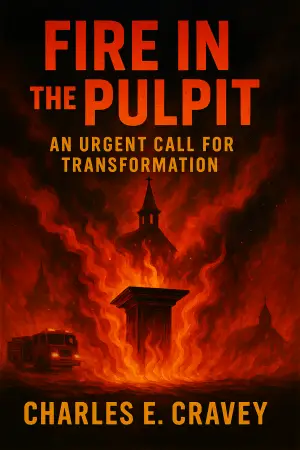Book Review: Southern Man (Penn Cage, #7)
There’s something undeniably magnetic about the worlds Greg Iles crafts, inviting readers into the layered and often tumultuous landscapes of the American South. As I dove into Southern Man, the seventh installment in the Penn Cage series, I was eagerly anticipating a return to the captivating storytelling I’ve come to love. My expectations were high, fueled by Iles’ previous works that balanced thrilling plots with profound social commentary. However, my reading journey this time took an unexpected turn that left me reflective and, frankly, a bit disappointed.
Southern Man melds the intricate relationship between personal history and societal context, a dance that Iles often performs with finesse. In this narrative, we are brought face-to-face with Penn Cage’s evolving character and the weight of his family’s legacy. Yet, I found myself grappling with how Iles designed Penn’s struggles, specifically his newly revealed health issues. The notion that Penn has been plagued by a debilitating blood cancer seemed implausible given his history, almost as if the author projected his own recent health challenges onto his protagonist. This felt disjointed, especially considering all the physical trauma Penn has endured in previous books.
The political landscape in Southern Man is inescapable, and while I understand that fiction reflects reality, I couldn’t help but feel that Iles’ portrayal was somewhat one-dimensional. There’s a striking critique woven throughout, where Penn and his father, Tom, are depicted as unwavering moral beacons—fierce liberals in a landscape filled with what Iles illustrates as the bane of conservatism. These portrayals, while possibly intended to provoke thought, at times felt heavy-handed, making it tough to immerse myself fully in the storyline. Instead of flowing seamlessly, I often found myself needing to step back, letting the political fervor wash over me before diving back into the plot.
On a more positive note, characters like Bobby White deliver a compelling contrast. His amoral ambition captures the cutthroat nature of politics, reminding us that dirtiness exists on all sides of the divide. Supporting characters like Kendrick and Doc add necessary texture to the narrative, harmonizing alongside Bobby’s chaos. This dynamic kept parts of the story engaging, despite the political undertones that occasionally left me yearning for a more balanced perspective.
One of my favorite elements of the book was the historical context, however imperfectly presented. Iles draws on real events, but I sometimes wished he had offered a clearer, more balanced portrayal. Captain Pencarrow, for instance, is a character who embodies the complexities of historical morality, yet his story lacked depth and nuance, reducing a rich historical figure to a mere stereotype.
Yet, amidst my critiques, I can’t deny the joy of seeing familiar faces like Daniel Kelly return. His unabashed authenticity and raw charm reminded me why I’ve invested my time in this series. It’s the threads of personal connection that resonate with me, and they are what keep me coming back, hoping for the next chapter in Penn’s saga.
In conclusion, while Southern Man didn’t quite meet the high bar set by previous stories in the Penn Cage series, it provided moments of intrigue and valuable character interactions. I’d recommend this book to those who appreciate a blend of political discourse intertwined with personal drama, but perhaps with the caveat that they might approach it with a balanced mindset. As for me, I find solace in knowing that Iles still has the potential for another Penn Cage story, one that I hope may delve deeper into themes of family and legacy—minus the political heavy lifting. While Southern Man was not my favorite, it still offered a rich tapestry of themes to ponder, and I look forward to what comes next.
Discover more about Southern Man (Penn Cage, #7) on GoodReads >>






